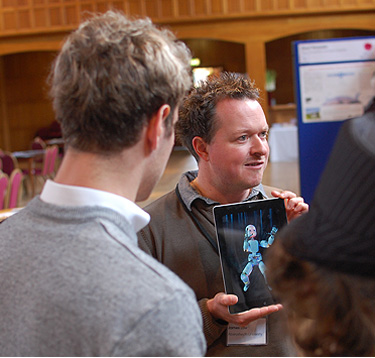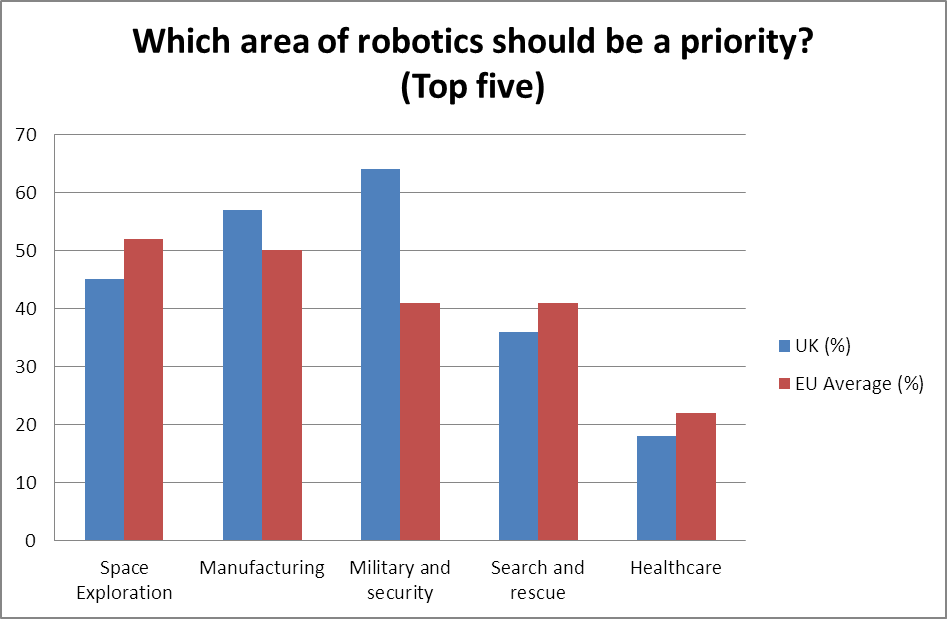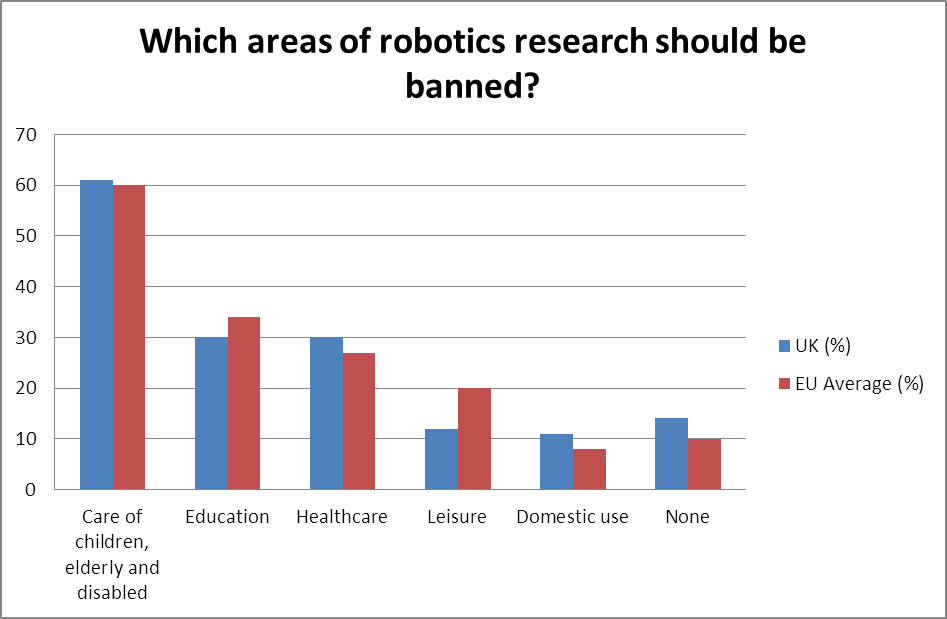
Robohub.org
What does the UK public think about robots? Sciencewise wants to know
What does the UK public want from robotics research? What are their hopes and fears? In order to discover more about what British citizens think about robotics and other key areas of technology, Sciencewise, the UK’s centre for public dialogue in policymaking for science and technology issues, has commissioned a set of reports to explore public attitudes through market research, opinion polling, academic research, public engagement activities and the media. The aim of the reports is to create a snapshot of current UK attitudes and values on robotics, and to make recommendations for further engaging the public in policy matters. The reports follow key announcements in the UK, including the identification of robotics as a key growth area by UK Chancellor George Osborne in his 2012 speech to the Royal Society, confirmation of this by Minister for Science and Universities David Willetts in his report Eight Great Technologies, and the July 2013 announcement that the UK robotics industry would receive a £40 million funding boost.
What does the public think?

The reports find that while UK public opinion towards robotics and autonomous systems (RAS) tends to be broadly optimistic (with the majority of citizens holding the attitude that these technologies are not only good for society but could also solve many of its problems), there is also some reluctance concerning how such systems would be managed and what their potential impact might be on employment. Some issues prove to be particularly controversial such as the use of robots in warfare or for the care of children or the elderly.
Many of the reports’ key findings come from the 2012 Eurobarometer 382 report Public Attitudes toward Robotics, which showed that UK citizens tended to agree that priority areas for robotics use should include: military and security (64%), manufacturing (57%), space exploration (45%), search and rescue (36%), and healthcare (18%). The Eurobarometer report also identified the areas in which UK citizens tended to agree that robotics should be banned: care of children, elderly and disabled (61%), education (30%), healthcare (30%), leisure (12%), and domestic use (11%).


While robotics is well-served by public engagement and education activities, there is relatively little dialogue or understanding of the views of the public around the controversial issues present in robotics. For example, while most UK citizens seem to be comfortable with the concept of using robots in the workplace, they frequently expressed that using RAS in industry should not be at the expense of workers losing their jobs. Further, most seem very uncomfortable with robots involved in their home lives – for example, taking care of an elderly parent, despite this being frequently mentioned as a possible application for robotics within an ageing society. Most puzzling is that the support for the use of RAS by the military is stronger in the UK than anywhere in Europe, despite strong homegrown opposition by UK pressure groups and academics.
Dialogue activities and/or more specialised opinion polling could help policymakers better understand these issues and close some gaps in current knowledge of public opinion. In summary, these gaps have been identified as:
Military applications of RAS
There is apparent support for military applications of RAS but also a great deal of resistance evidenced in the media and through the actions of pressure groups. This is an area where there is a lack of understanding of the detailed views of the public, and the existing information appears contradictory. Further research on the views of the public on the applications of RAS in a military and security context may be useful to assess what UK citizens are comfortable with, ranging from troop support in areas such as minesweeping to remote surveillance to fully armed drones.
RAS and the ageing population
A gap that exists within the current social intelligence is the extent to which publics might support RAS becoming part of the daily lives for an ageing population (for example, measuring the support for homes which have “smart” temperature controls and can measure if the fridge is empty, to full-blown robot companions/carers).
RAS and job security
As commented elsewhere, there is a tension between fully exploiting RAS for the benefit of a growing economy (by boosting advanced manufacturing techniques with the addition of RAS) and the potential loss of jobs within the manufacturing, service and maintenance sectors. Dialogue activities may help to identify where the public are most comfortable with the concept of RAS entering the workplace.
***
What do you think?
At Sciencewise, we really want to hear your comments about the research – do you agree with the conclusions that we have drawn? Are there any gaps in our intelligence that you think we have missed? Add your comments below!
About this project
What the Public Thinks is operated by Sciencewise, which provides co-funding and specialist advice and support to UK Government departments and agencies to develop and commission public dialogue activities in emerging areas of science and technology. Sciencewise is funded by the Department for Business, Innovation and Skills.
tags: c-Politics-Law-Society, cx-Research-Innovation, Report, UK





